How young feminists are organizing: Hilary Pennington with Hakima Abbas

Transcript
[Hilary Pennington, a white woman with short blonde hair, wearing a blue top, sits for a video conversation with Hakima Abbas, a Black woman with curly black hair, wearing a white blouse and glasses.]
HILARY PENNINGTON: What is it in your own life that has led you to be as passionate and innovative as you are?
[on-screen graphic: Hakima Abbas, Co-Executive Director, AWID]
HAKIMA ABBAS: I learned very early that it’s important to create safe space for us to be, um—as Black women, to thrive and for us to be able to challenge the world and to say, “This is not right, and this is not how it should be.” And it can be different as well, right?
HILARY: Yeah.
HAKIMA: I saw the ways in which it could be different.
[on-screen graphic: Social Justice Leaders on What Matters, Hilary Pennington with Hakima Abbas]
HILARY: I am speaking today with Hakima Abbas, who is the co-executive director, together with Cindy Clark, of AWID, the world’s leading international feminist sustainable development and human rights organization. An African feminist, trained in international affairs, Hakima has a long history in social movements. I’m really excited to be speaking today.
HAKIMA: Thank you, Hilary.
[on-screen text: Hilary Pennington, Executive Vice President of Programs, Ford Foundation]
HILARY: It has been a year of so much suffering and disruption but also really, really exciting and renewed social justice movements. And I am curious what sense you make of it, and in particular what you feel we’re learning about fighting inequality.
HAKIMA: So, AWID is a global feminist movement support and membership organization. We have members in 180 countries—6,600-and-so members, the majority of whom are from the Global South. So, at this time, during the global pandemic, we’ve seen a spike in our members, which really shows that feminists are in a moment where they want to be part of something. And we have a responsibility as an organization to make sure that they’re connected, that they’re able to exchange and learn from each other and be in solidarity.
HILARY: That’s fantastic to hear that, Hakima. Talk to me a little bit about what the feminist vision is that you are trying to call people into.
HAKIMA: We’re calling people to be bold and relevant and strategic in this moment. We’re calling to a feminist leadership that’s collective, that’s in service. I’m really inspired by the women in Poland and by the people in Chile who are demonstrating. And, you know, many of us can’t name who’s the leader of that, because it’s collective, because it’s in service, because it’s about us coming together. And I think that’s so important in this moment.
HILARY: I love those ideas. I think these are leader-full movements. They’re not leaderless movements.
HAKIMA: They’re also moments of possibilities, where a whole generation of people experience the possibility and the agency of creating change.
HILARY: You know, the nature of change is very complex, as we see during COVID in who disproportionately is bearing the brunt of what’s happening in most societies around the world. I mean, I think that’s part of the kind of conversation and network you at AWID are trying to curate and to anchor. And so I’d love to hear you talk a little bit more about what are the kinds of conversations you have across those members.
HAKIMA: A conversation that’s been so important at this moment is around the economy and the need for a feminist bailout and economic recovery. Because the pandemic, as you said, has impacted people at the very basis of their livelihood. About 81% of the world’s workers are negatively impacted at this time, and that’s basically everybody. And so we know that in supposedly normal times, women are the most underpaid, work in the most precarious work, have the least rights in the workplace, and experience violence in the workplace. So now, in this moment where things are so difficult, the burden again is on women. And so we started a conversation around the feminist bailout, using some online actions and webinars and conversations, and saw huge uptake around that idea.
And so, again, it was really wonderful to see how different feminists in different contexts use this idea of a feminist bailout very differently. In Kenya, it meant informal workers went to the streets and demanded a feminist bailout. In Haiti, they came together and appealed to the government through letters and petitions around the feminist bailout.
And so it’s that kind of conversation—understanding the impact now but also what that’s going to mean in the long term, and trying to interrupt it as we can now.
HILARY: I think that’s such a powerful, um—a powerful picture that you’re painting of the power of a network, right? Of connected people. If you, as a, you know, a body of feminists represented by AWID, were making priorities for what governments or international organizations can do, what would be at the top of your list?
HAKIMA: I’d like to start by saying, going back to that idea of feminist leadership. I don’t think it needs to only sit within movements.
HILARY: Yeah.
HAKIMA: I think feminist leadership can happen and should happen in governments, in multilateral institutions. In places like in Kerala, in the state in India, where they’ve had this long-term sustained empowerment of women and women’s networks and collectives, that they were able to activate those for the pandemic response, and that made a significant difference in terms of them being able to provide health education, being able to provide food and all kinds of other resources to respond to the pandemic. It’s that different mindset from government, the enabling environment for networks and collectives to exist, so that then we can activate them when society is in need.
HILARY: That allows a much faster adaptive response, right, than anything that comes from the top down, both to send information up about what the needs actually are and then to organize effective response.
HAKIMA: And I think that’s, in many ways, what social movements do every day, in the sense that we put demands forward and we put propositions forward to say, “This is what could be.”
HILARY: That’s so hugely important. And I know you think a lot about a generational change and that AWID has done an amazing job, I think, of really activating young feminists and making sure that their voice and their knowledge and their expertise has an equal place at the table. I’d love to hear you talk a little bit more about how you see that within the feminist movement right now, and how they’re challenging the movement.
HAKIMA: We are really excited that about 48% of our institutional members are young feminists. And it’s fantastic because, again, it means that young feminists are looking for and finding places to connect across geographies, across movements, across themes that they work on. I’ve been really excited in this moment of the pandemic, seeing some of the creative ways in which young feminists have organized. So, things that I wouldn’t have thought of, um, the ways that they—
HILARY: Like what?
HAKIMA: Like TikTok—and the things that they do to disrupt, you know?
HILARY: [laughs] Yeah!
HAKIMA: And I love the irreverence. I love the just being out there, being impolite, just saying it as it is. It cuts through so much of the obtuse ways in which institutions may organize or, or—you know, it says, like, “We’re here and this is what we’re demanding.” And I’m thinking, for instance, the environmental activists, some of whom, you know, are active at the UN but are going to the UN and saying, “How dare you?’’ And that’s— that’s not the language that’s usual in those spaces—
HILARY: Yes.
HAKIMA: You know, where you’re being very polite and “We recommend” and “We urge this.” But just to say, “No. How dare you? You’ve had this long and you’re spoiling things.”
HILARY: “Who do you think you are?” Yes, absolutely. You are, yourself, still a young leader and I’m interested in your own journey. What is it in your own life that has led you to be as passionate and innovative as you are?
HAKIMA: I was raised very much in a political family, because my family is a family that in many ways was displaced. We’re African. I grew up in the diaspora. It was also a very matriarchal family, and so the feminist ideas weren’t so much a theory or something that was spoken about, but it was very much in action. It was the practice. And that, of course, is so different as soon as you step out of your home.
HILARY: Yeah, yeah.
HAKIMA: And so I think I learned very early that it’s important to create safe space for us to be, um—as Black women, to thrive and for us to be able to challenge the world and to say, “This is not right, and this is not how it should be.” And it can be different as well, right?
HILARY: Yeah.
HAKIMA: I saw the ways in which it could be different.
HILARY: You and your work at AWID are so important to us at the Ford Foundation, so I’m really, really grateful for the opportunity to talk like this.
HAKIMA: Thank you.
HILARY: Thank you.
[on-screen text: What’s your take? Join the conversation]
[on-screen graphic: Ford Foundation logo]
Accessibility Statement
- All videos produced by the Ford Foundation since 2020 include captions and downloadable transcripts. For videos where visuals require additional understanding, we offer audio-described versions.
- We are continuing to make videos produced prior to 2020 accessible.
- Videos from third-party sources (those not produced by the Ford Foundation) may not have captions, accessible transcripts, or audio descriptions.
- To improve accessibility beyond our site, we’ve created a free video accessibility WordPress plug-in.
“I learned very early that it’s important to create safe space for us to be, as black women, to thrive and for us to be able to challenge the world and to say this is not right and this is not now it should be.”
In this episode of #OnWhatMatters, our vice president Hilary Pennington joins Hakima Abbas, co-executive director, Association for Women’s Rights in Development, an international, feminist, membership organization committed to achieving gender equality, sustainable development and women’s human rights. Hakima outlines how feminist leadership is responding to the pandemic in innovative ways and how young feminists are bringing new energy to the movement.
Learn more about AWID at: www.awid.org/
Other videos in this series
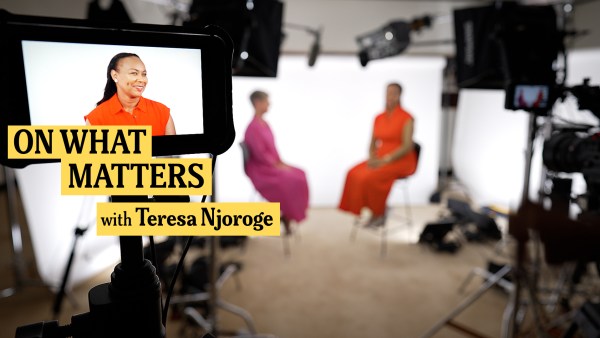
The Power of Restorative Justice With Teresa Njoroge and Hilary Pennington
Teresa Njoroge, founder and CEO of Clean Start Solutions and criminal justice reform advocate, and Hilary Pennington, executive vice president of programs at the Ford Foundation, discuss helping people who have been through Kenya’s justice system find new dignity and hope through employment.
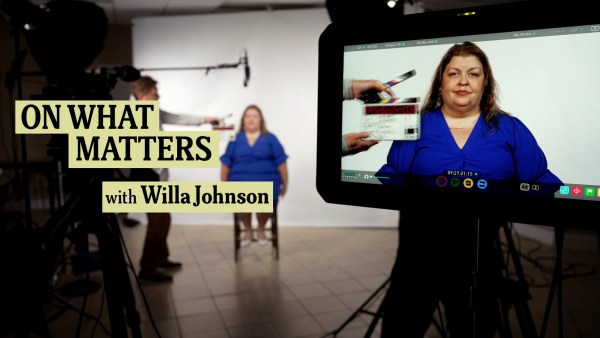
The Power of Appalachian Art With Willa Johnson and Sarita Gupta
Willa Johnson, director of the film department at Appalshop, and Sarita Gupta, vice president of U.S. programs at the Ford Foundation, discuss heartland creativity and amplifying rural narratives.
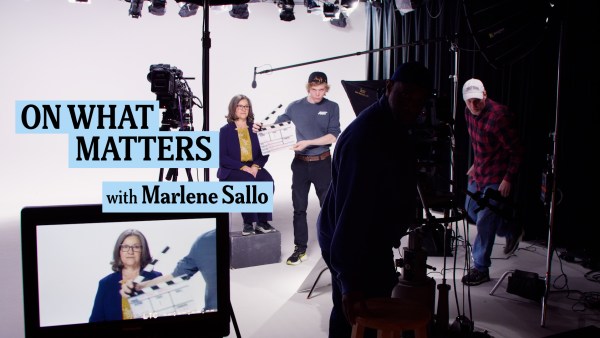
Centering Disability Rights and Justice With Marlene Sallo and Hilary Pennington
Marlene Sallo of the National Disability Rights Network and Hilary Pennington of the Ford Foundation talk about the systems that support and fail the disability community and how disability justice is essential to building a multiracial democracy.
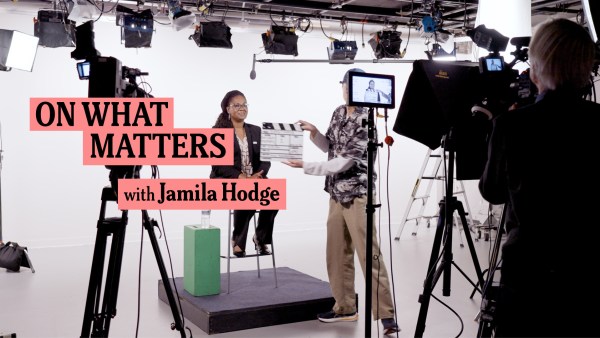
Advancing Community-Based Violence Intervention With Jamila Hodge and Sarita Gupta
Jamila Hodge of Equal Justice USA and Sarita Gupta of the Ford Foundation talk about community-based violence intervention and the importance of promoting a trauma-informed public health response to violence. Jamila explains how, if we want to address institutional racism, we must address the root causes of violence and center those most impacted.
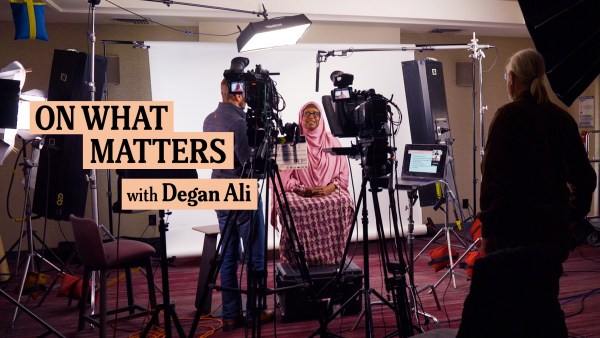
Decolonizing Humanitarian Aid With Degan Ali and Martín Abregú
Degan Ali and Martín Abregú talk about shifting to locally led development and decolonizing aid. Degan shares why we must rethink current structures of providing aid and have local civic society organizations play a stronger and more strategic role in global policy debates.
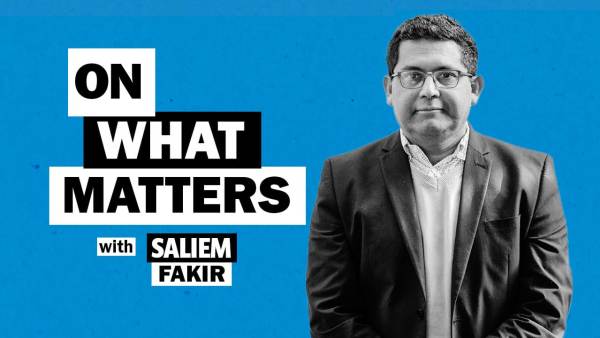
Working Towards a Truly Just Energy Transition with Hilary Pennington and Saliem Fakir
Saliem Fakir, the founder and executive director of the African Climate Foundation, the first grantmaking foundation in Africa focused on furthering solutions for sustainable climate development, joins Hilary Pennington to discuss the urgent need to address climate change and South Africa’s promising Just Energy Transition Partnership.
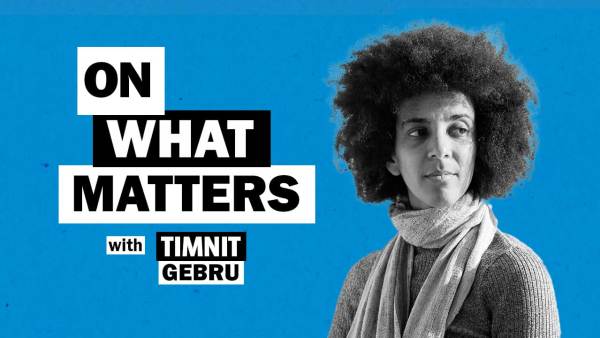
Making AI systems more just with Hilary Pennington and Dr. Timnit Gebru
Dr. Timnit Gebru, founder and executive director of the Distributed Artificial Intelligence Research Institute (DAIR), joins Hilary Pennington to discuss how an inclusive and collaborative approach to creating AI systems can address the uneven benefits and harmful impacts of technology on society.
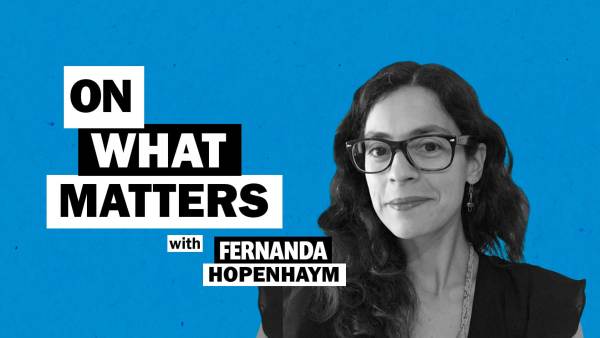
Holding corporations accountable with Hilary Pennington and Fernanda Hopenhaym
Fernanda Hopenhaym is the co-executive director of the Project on Organizing, Development, Education, and Research (PODER), a nonprofit in Latin America that pushes for corporate accountability for human rights and environmental abuses. Fernanda and Hilary discuss how to keep businesses ethical and transparent by using feminist and human rights organizing strategies.
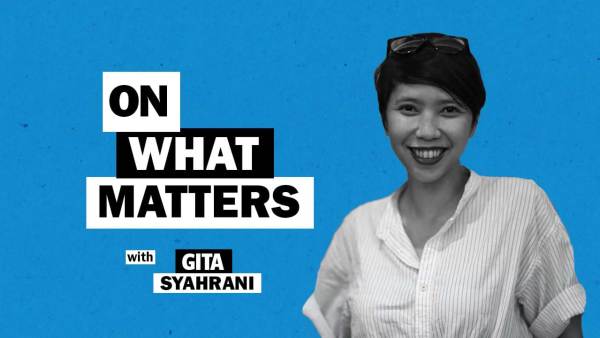
Saving forests while eradicating poverty with Hilary Pennington and Gita Syahrani
Hilary Pennington talks with Gita Syahrani about how engaging Indigenous and local communities in sustainability efforts can lead to greater economic mobility for them. Her work shows how civic engagement at the district level can have global impact.
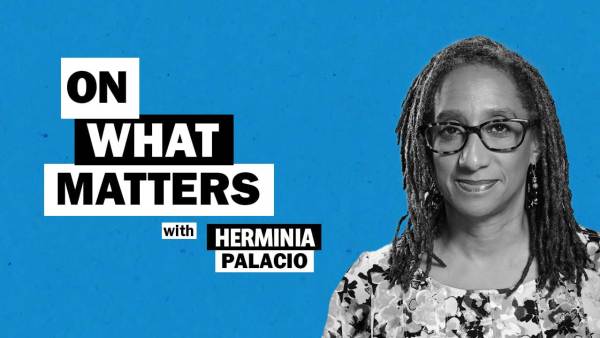
The future of reproductive justice with Hilary Pennington and Dr. Herminia Palacio
Hilary Pennington and Dr. Herminia Palacio discuss this moment in the reproductive justice movement, how different communities are impacted, and what the United States can learn from countries that have won gender and reproductive health victories.
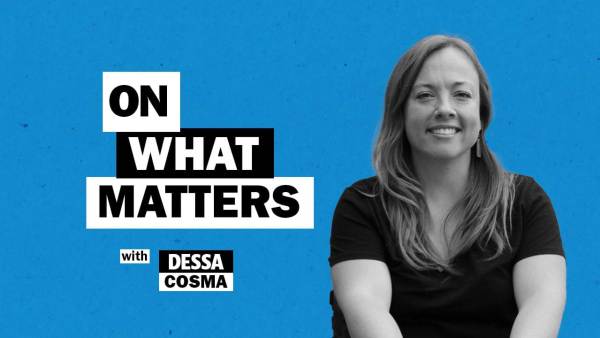
Reimagining how we think about disability with Hilary Pennington and Dessa Cosma
Hilary Pennington talks to Dessa Cosma about disability justice and inclusion. They discuss the importance of using intersectional approaches to activism and how to restructure the economy to be more just for disabled people.
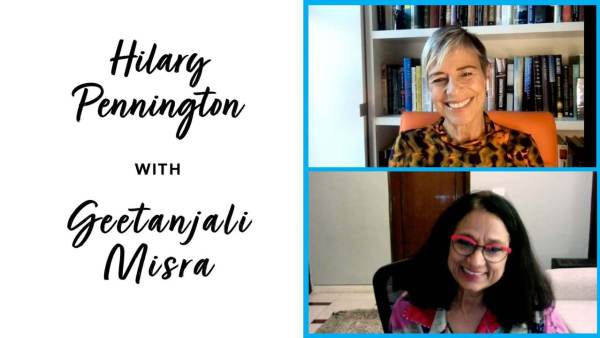
The future of feminism: Hilary Pennington with Geetanjali Misra
Geetanjali Misra has bore witness to the evolution of feminism both on the ground in the U.S. and India and in her work as an activist. Seeing patterns change and movements shift, she speaks about the importance of intersectionality in building a more inclusive feminist future.
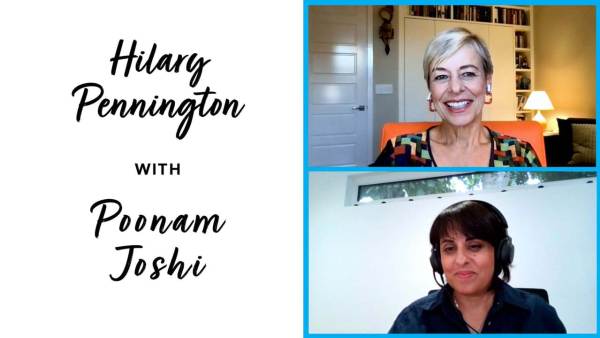
COVID’s impact on civic space: Hilary Pennington with Poonam Joshi
Civic space is essential for democracy. It allows people to participate in society and communicate freely and without discrimination. But, according to Poonam Joshi, director of Funders’ Initiative for Civil Society director, there are threats that need to be addressed before we solidify the civil society we want in the future.
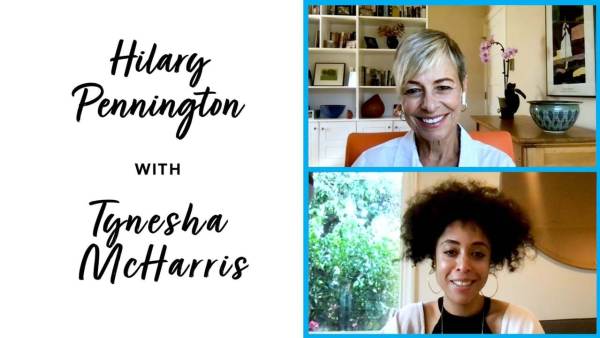
Funding Black feminism: Hilary Pennington with Tynesha McHarris
Black feminist movements are advancing social justice globally. Tynesha Harris, one of the founders of the Black Feminist Fund, aims to channel more support to movement leaders and create a model of true solidarity. Racial, gender, and class injustice need an intersectional approach that acknowledges the inherent value of Black women.

Philanthropy and environmental justice: Hilary Pennington with Laura García
When it comes to climate change, time is running out. But communities all over the world are working on solutions, and philanthropy needs to center their ideas and perspectives to win this fight. Laura Garcia, CEO of GlobalGreen Grants Fund, shares how funding grassroots movements can address challenges at the intersection of social and environmental justice.
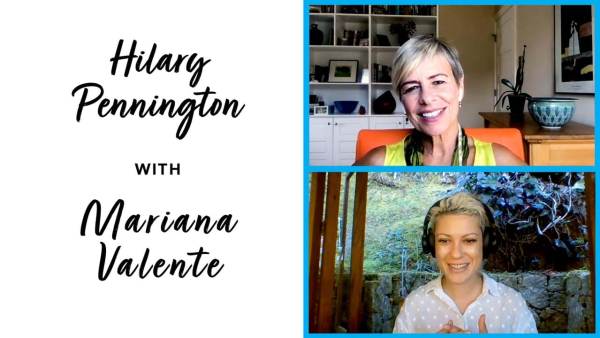
Technology and gender: Hilary Pennington with Mariana Valente
The internet is a force for good, but it must be guided by fundamental human and privacy rights and offer social protection, said InternetLab director Mariana Valente. In this way, technology can advance equality and, with the right policies in place, be used as a tool for advocates to organize.
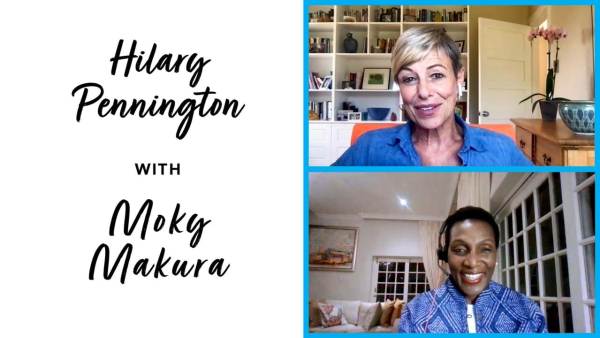
The power of storytelling: Hilary Pennington with Moky Makura
For too long, Africa has been defined in the media by stereotypes and oversimplified narratives. With Ford’s support, Africa No Filter is disrupting these narratives by empowering storytellers helping to create a nuanced, balanced view of the continent and an equitable, inclusive way of how to partner with it.
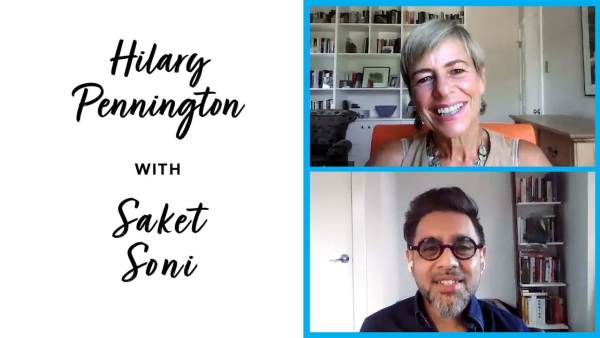
What essential workers need right now: Hilary Pennington with Saket Soni
Disasters present the opportunity to bring us together and give us the chance to reevaluate our priorities and ask what’s really important. Labor organizer Saket Soni sees COVID-19 as a prologue to other threats, like climate change. He says disaster responses need to focus on strengthening essential workers.
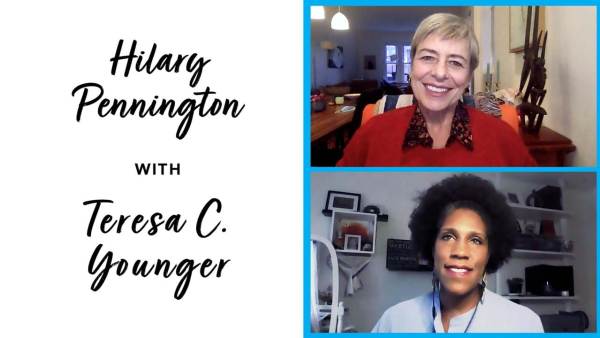
Philanthropy and Black women: Hilary Pennington with Teresa C. Younger
Social justice organizations led by women of color often receive less funding. Teresa C. Younger, CEO of the Ms. Foundation, explains why philanthropy needs to center women of color to address systemic racism and uplift women and girls of color for a more just future.
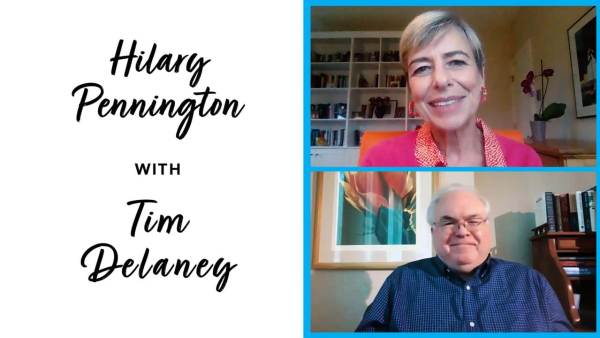
How nonprofits make an impact: Hilary Pennington with Tim Delaney
Over one million nonprofits exist in the United States, but Tim Delaney, the CEO of the National Council of Nonprofits, has an idea to make them even more impactful. To him, bringing social justice groups together can transform philanthropy for the benefit of all.
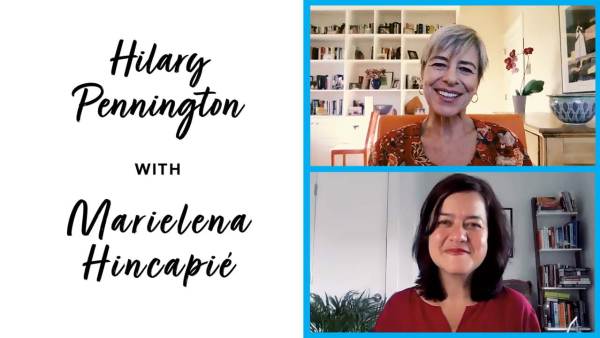
Immigrants are essential: Hilary Pennington with Marielena Hincapié
Immigration has been used as a weapon to divide the United States. The National Immigration Law Center aims to help the country understand that immigrants are not only important members of our communities and essential workers, but they are also valuable political constituencies needed to make American democracy work.
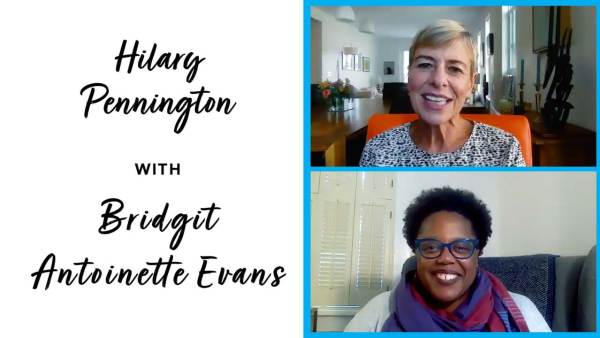
Social justice and pop culture: Hilary Pennington with Bridgit Antoinette Evans
Pop culture plays an important role in advancing social justice. Bridgit Evans of Pop Culture Collaborative produces cultural strategies that build on points of connection to ensure policy changes are not just symbolic. By finding commonalities through culture, she believes we can create a world where everyone feels they belong.
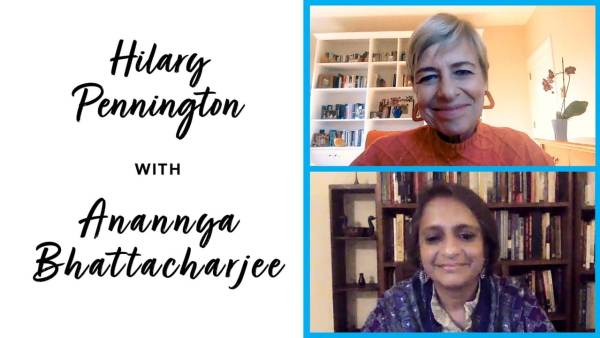
Global work needs to be local: Hilary Pennington with Anannya Bhattacharjee
While the labor movement has worked to improve the lives of garment factory workers globally, activist Anannya Bhattacharjee advocates that solutions need to start locally and come from the ground up to have a significant impact on workers’ lives.
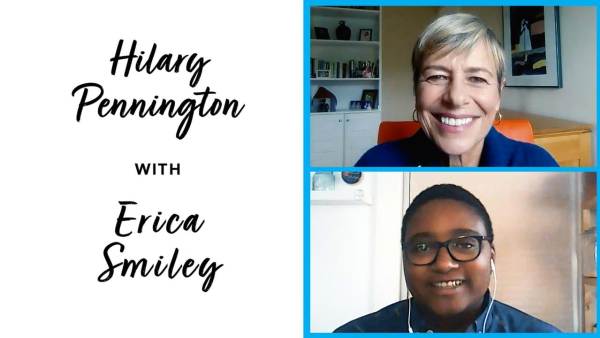
Essential workers are the economy: Hilary Pennington with Erica Smiley
The COVID-19 pandemic has dramatically changed the way we as a world work. As we face this inflection point, Erica Smiley, executive director of Jobs With Justice, believes people—especially essential workers—need to have the right to come together collectively to organize and negotiate their conditions to build a global economy that works for all.

The urgency of this social moment: Hilary Pennington with Eric Ward
We need to dismantle racism to make inclusive democracy truly possible. Eric Ward of Western States Center believes smaller movements can help support bigger waves of change. From creating cohorts of emerging leaders to encouraging small group interactions can help protect democracy and put an end to white supremacy.